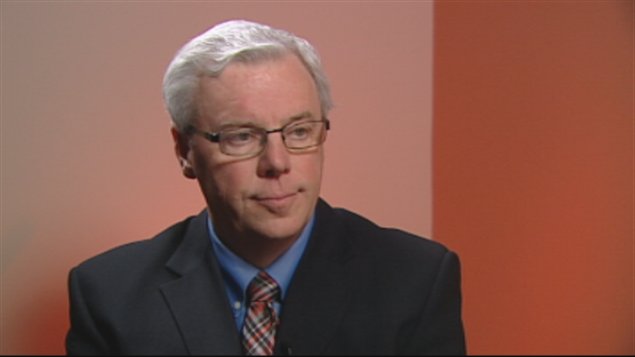Over the past year and a half, each of the Prairie provinces held crucial elections resulting in decisive majority governments. These governments will shape the political and cultural direction of the Prairies for the next four years – and, potentially, for a decade or more. As such, this series will examine the leaders we have chosen for this monumental task, who they are and where they plan to take us.
In this second installment (read the first installment, on Alberta Premier Alison Redford, here), I examine the Manitoba NDP under Premier Greg Selinger.
Shortly after Manitoba’s 2011 election, which saw Greg Selinger’s NDP win a fourth consecutive majority government despite fiscal uncertainty and a ravenous flood, former NDP premier Gary Doer had his portrait erected in the legislative assembly.
Depending on the party in power, these ceremonies can be social experiments testing the limits of civility. Recall former prime minister Jean Chretien’s portrait ceremony in the federal House of Commons, where Stephen Harper stated he had “always wanted to hang Mr. Chretien.”
In the case of Gary Doer, the ceremony was an occasion for self-congratulatory back-slapping. After all, the former premier, who left in the middle of his third mandate (in 2009) to take a post as Canada’s ambassador to the United States, was being greeted by his replacement—Greg Selinger—after an historic NDP election victory, solidifying his legacy.
Doer took the opportunity to chide the Progressive Conservatives, wishing them a dismissive “good luck” over the next four years against the formidable New Democratic political machine he had helped build over a decade earlier.
As I watched the jovial plutocrats hobnob with Canada’s top diplomat, it became clear what, precisely, was unfolding.
The 2011 election victory, and that ceremony, constituted the real birth of a political dynasty.
The Manitoba New Democrats and Progressive Conservatives have traded power roughly back-and-forth since the early 1960s. From Duff Roblin (PC) to Ed Schreyer (NDP) and Howard Pawley (NDP) to Gary Filmon (PC), the province has been served relatively well by a natural democratic impulse to “kick the bums out.”
In hindsight, that healthy democratic practice ended with Gary Doer. A political dynasty has been born, and the result will be—in fact, it already has been—a public policy void and a do-nothing culture of complacency.
Doer, the handsome charmer with loose political ideals, made the NDP an acceptable alternative to the Gary Filmon PCs after an era of austerity in response to massive federal cuts to transfer payments in the mid-1990s. His slick opportunism was irresistible to Manitobans who had long abandoned the provincial Liberals as an alternative to the Tories and were no longer interested in old-school social democracy.
Whether voters realized it or not, Doer was offering “Third Way” social democracy to the province during his first winning election campaign in 1999. He did it again in 2003 and 2007.
The Third Way—pioneered by figures like British Labour leader Tony Blair and others—involves a loosening of principle in response to global economic pressures. Insularity is no longer an option, the argument goes, and policies have to adapt accordingly.
The Third Way also symbolizes what voters had come to expect from government in Manitoba—after Filmon, they wanted lukewarm liberalism with a socialist tinge. But regardless of the success of it as a political pitch, it ultimately results in ceding ground on social justice issues (the bread and butter of the NDP) while letting the economy languish.
That legacy persists to this day under Greg Selinger.
While businesses struggle with large tax burdens and costly government regulations, the province also faces staggering levels of economic inequality, crime and all-out poverty.
Winnipeg is the violent crime capital of Canada and has a rental housing vacancy rate that consistently hovers around 1%. Tough rent controls remain in place throughout the province, contributing to the problem, and social assistance rental allowances haven’t been increased since the early 1990s–making housing prohibitively expensive for the poor.
Manitoba leads the country in food bank usage, in infant mortality rates, poverty rates and incarceration rates for young Aboriginal men. It has been the subject of national disdain for its staggering number of missing and murdered Aboriginal women. Most recently, its Child and Family Services system has been put under investigation due to the torture and murder of a little Aboriginal girl right under the noses of government civil servants.
The City of Winnipeg, Manitoba’s largest population center and the pulse of the province, has a severe infrastructure deficit and problem with suburban sprawl. The provincial government has shown no real initiative in owning this issue or working constructively with civic leaders, no matter how malignant they may be.
Meanwhile, heath care costs continue to spiral out of control, the deficit remains a bloated cross to bear and many victims of the 2011 flood are struggling to return home.
Finally, we have a culture of complacency that goes to the heart of the NDP’s “success story.” The Government of Manitoba is the province’s largest employer and, perhaps as a result, private sector success is more often dismissed than celebrated.
Just this week, PC leader Brian Pallister—a successful private sector financial consultant—was derided by Dippers for purchasing a $2 million home in Winnipeg. Given what sometimes feels like an overwhelmingly bleak economic and political picture, one would think they’d be grateful someone is laying down roots in the province.
More than any change in government, what Manitoba needs is a political shake-up. It needs ideas. It needs to make innovations in public policy that can help the economy and people just trying to make ends meet.
This could happen under Premier Greg Selinger, who is clearly a thoughtful and conscientious man. But only if he takes the necessary political risks and puts the future of his province before the future of his party.
___
Ethan Cabel writes for the Spectator Tribune.
Follow us on Twitter: @SpectatorTrib
